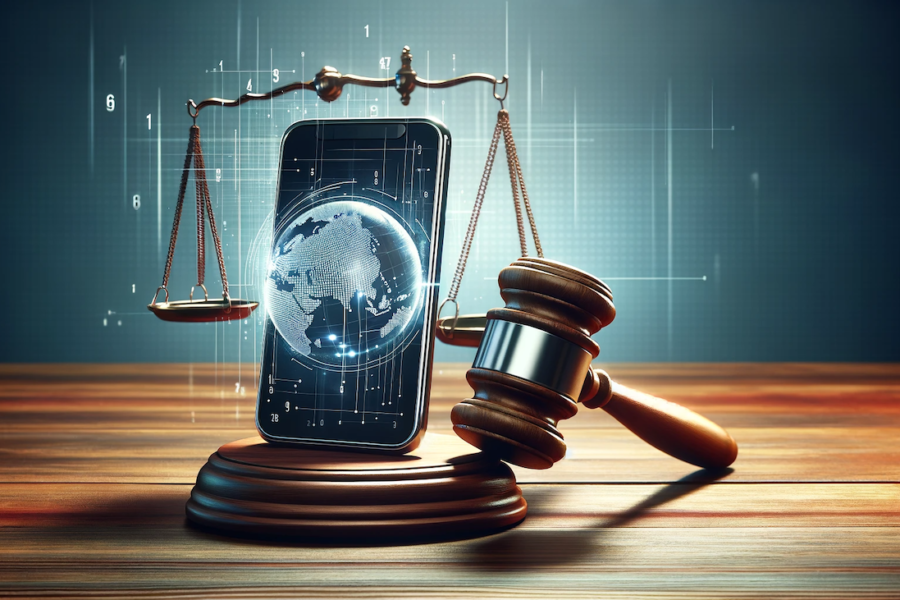Introduction
In a landmark ruling, a Delhi Court has mandated that the Delhi Police comply with the new regulations surrounding digital evidence submission. This directive, issued by Additional Sessions Judge Sh. Pulastaya Parmachala in the context of the 2020 Delhi riots case, highlights the ongoing transition from the Indian Evidence Act, 1872, to the newly enacted Bhartiya Sakshya Adhiniyam, 2023 (BSA). The case underscores the challenges of adhering to modern evidentiary standards amid evolving legal frameworks.
The Background of the Case
During the proceedings, the prosecution called upon officials from a telecommunications company and the Emergency Response Support System (ERSS) to produce certified call data records and emergency call logs related to the riots. Initially, these officials submitted certificates under Section 65B of the Indian Evidence Act, which has since been repealed. Upon realizing this, they later presented certificates under Section 63 of the BSA, only to find that these did not comply with the required format.
The Role of Section 65B
Under the Indian Evidence Act, Section 65B was instrumental in facilitating the admission of electronic evidence without needing the original document. This section required the certifying party to ensure that the evidence was a true representation of the original and had not been altered. The Supreme Court’s ruling in Anvar P.V. v. P.K. Basheer, (2014) 10 SCC 473, clarified the conditions under which electronic evidence could be admitted, including the necessity for proper certification.
Key Changes Introduced by the BSA
The BSA, 2023, introduces more rigorous standards for electronic evidence. Notably, Section 63(4) states that the certification must now be signed by both the custodian of the device and an expert, with the certificate following a specific format that includes a “Hash Value.” This hash value serves as a digital fingerprint, ensuring the integrity and authenticity of the electronic record.
The Challenge of Defining ‘Expert’
A significant challenge within the BSA is the ambiguous definition of an “expert.” Section 39(2) parallels Section 45A of the Indian Evidence Act, permitting courts to consult an Examiner of Electronic Evidence, as outlined in Section 79A of the Information Technology Act, 2000. While this provision strengthens the validation of digital evidence, it raises questions about accessibility and the qualifications required for someone to be deemed an expert.
Implications for Legal Practitioners
Compliance Challenges
The stricter compliance requirements could pose challenges, particularly for individuals and smaller legal entities who may lack the technical know-how to produce necessary hash value reports or navigate the new certification requirements. While the state may find compliance manageable in criminal cases, civil disputes may face significant hurdles.
Infrastructure and Resource Constraints
Currently, the Ministry of Electronics and Information Technology has designated only 15 Examiners of Electronic Evidence. This limited number is grossly insufficient given the expansive scope of digital evidence that will likely arise in both civil and criminal litigation. This shortage could lead to considerable delays in trials, complicating the effective implementation of the new legal provisions.
Ongoing Trials and Legislative Transition
Another pressing question is how to handle electronic evidence submitted before the enactment of the BSA. Specifically, if evidence was submitted without a valid Section 65B certificate or with a defective one, should new certificates be filed under the old Act or the BSA?
Judicial Guidance
In Arjun Panditrao Khotkar v. Kailash Kushanrao Gorantyal, (2020) 7 SCC 668, the Supreme Court clarified that Section 65B did not specify when a certificate must be submitted. The Court suggested that, ideally, this should occur alongside the chargesheet. However, if this was overlooked, the trial court could allow a new certificate, provided it did not prejudice the accused’s rights.
The Repeal and Savings Clause
Section 170 of the BSA explicitly states that trials or proceedings initiated before the new legislation’s enactment will continue to be governed by the provisions of the Indian Evidence Act, 1872. Consequently, if electronic evidence was submitted prior to this date, any subsequent certifications must adhere to the old Act, emphasizing the need for clarity in judicial interpretation.
Conclusion
The shift from the Indian Evidence Act, 1872, to the Bhartiya Sakshya Adhiniyam, 2023, brings both opportunities and challenges in handling digital evidence. While the new framework aims to enhance the integrity and reliability of electronic submissions, it also necessitates careful consideration of the practical implications for legal practitioners and the judiciary.
The ongoing transition underscores the need for comprehensive judicial clarification to address ambiguities and establish clear procedures for evidence submission. Only through concerted efforts can the legal system effectively adapt to these changes, ensuring that the rights of individuals are safeguarded while maintaining the integrity of the judicial process in an increasingly digital world.

